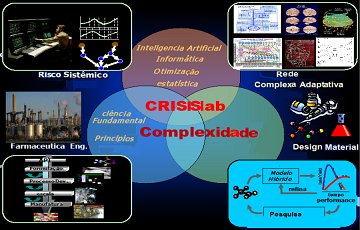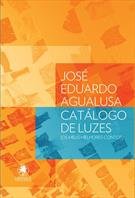
Arquivo para a ‘Information Philosophy’ Categoria
Five new thinkers in 2014
 Next to already established Edgar Morin, Manuel Castells and Peter Sloterdjik, which had a famous program in Germany Rüdiger Safranski along with about culture, which lasted 10 years, and that is the end of Paul Ricoeur and Emmanuel Levinas in past century, not yet “passed”, but known by the questions and issues raised.
Next to already established Edgar Morin, Manuel Castells and Peter Sloterdjik, which had a famous program in Germany Rüdiger Safranski along with about culture, which lasted 10 years, and that is the end of Paul Ricoeur and Emmanuel Levinas in past century, not yet “passed”, but known by the questions and issues raised.
Although the best known of Sloterdjik is “Rules for the human park” by the controversy it caused, is his discussion of “spheres” and “contempt of the masses” point to the major contemporary issues.
Is that something new can still emerge? can always, I have not yet definitive opinion, but I quote a few that should be taken seriously.
I mention two Europeans: the weak-Algerian Jacques Ranciére (You can still talk about democracy?) And Piero Coda (Della Trinita), an American Martha Nussbaum (Political Emotions: Why Love Matters For Justice) and Boris Groys an American (On the New ) and could not fail to miss an oriental, of course must have other, the japanese-american Francis Fukuyama (The end of History and the last Man).
Yes Fukuyama was criticized for its “end of history”, and this may provide little attention to what could be translated as “end of historical materialism” and his book “Political Order and Political Decay” (2014), which should be read by many of the world’s political and states that have a hole (gap) history in politics, especially in the western.
Caught Ranciére and Piero Coda basic ideas to think, the first states that no one has more intelligence than anyone else and the second gives huge clues to a multicultural and multi-religious relationship to the world of today, with a history of life and not to think.
Gives food for thought and good thinking, humanity needs answers, what are the issues?
Among dreams, imagination and technology
Everything we want to dream, imagine and travel, even if at the cheap cost of the Web, seems to find skeptics, critics and fundamentalists warning us of the dangers.
But thankfully the planet continues to have utopian, dreamers and poets. I came across, these days, with one of these, simply a wonderful and unusual book of an Angolan writer, white and who as travelled a lot: José Eduardo Agualusa, I started flipping through the book and already ordered it online, but anxious and excited I asked a friend to get it in a library, for me.
It seems incredible, but like if it would be a divine light, I opened just in one page about his anthology “Catalogue of lights” that explained “Why is it so important to see stars”, I like to know about the stars, quantum physics and look to the sky, at night, from my house which is located on a dark street.
And Agualusa continues: “Having stopped to confront, every night, with the unlimited, the infinite, the awesome immensity of the universe – the men lost their humbleness, and with the humbleness they lost their reason, the madness of the world is, in her opinion, directly linked to the rural depopulation and the vertiginous multiplication of the big cities”.
Thanks! Dreamer, utopian and realistic José Eduardo Agualusa, dreamers give me courage, life and hope, excuse me the non- utopian, they are too bitter, the reality is hard enough.
Ontological resumption
The intentionality, a subcategory of medieval philosophy defined within the statute of consciousness, was recovered by Franz Brentano to qualify it as being directed to something , or about something , for it is also important for psychology, which was used by Edmund Husserl, to say that consciousness is always intentional, directed to an object, real or imaginary.
defined within the statute of consciousness, was recovered by Franz Brentano to qualify it as being directed to something , or about something , for it is also important for psychology, which was used by Edmund Husserl, to say that consciousness is always intentional, directed to an object, real or imaginary.
These objects will be in the ontology of Husserl , among noemas between noesis and because they re-establish the relationship between subjects and objects .
Husserl called noema any representation of the object , and the apprehension of the object by the subject (consciousness) process, called Noesis.
For this reading of the phenomena “the essences obtained by imaginative variation from the noetic – noemáticas correlations of experiences and evidence seized with an intuition form the basis of regional ontologies or materials corresponding realms of being, nature, man, culture …” (Mafalda F. Blanc , Introduction to Ontology , pp . 26 ) .
Husserl will not only opposition to Kant , but also to ” extend the realm of the a priori formal plan of the object in general, obtained by abstraction of all material content” somehow incorporates the Kantian project of a critique of reason, ” establishing and determining the value of the concepts and laws of logic , ethics and axiology in the light of past structures of object categories.” (BLANC , pp. 26).
Husserl can enable it with the ontology , ” to conceive the most important of the senses of being in Aristotle – categorical – no longer as a logical form of judgment, but given as a gift, intuitive and fulfilling to see a properly immanent ” (p. 27)
Thus Husserl shows as real as having ” individuality , temporality and sheer determination , as opposed to the universality and timelessness of the ideal , discerning five irreducible strata : … the inorganic and the organic, psychic , and personal sphere of objective spirit (language, cultural tradition)” (pp. 26) .
The project will be even more orthodox Heidegger phenomenology as it will ” develop this conception of time as possible and be array itself , reversing the classical perspective of philosophy , he thought the time as the phenomenal manifestation of being ” (pp. 29) .
The Book Thief
I made the purpose of reading this book to a friend, housewife, who asked me who only read books  “academic” and the result was surprising.
“academic” and the result was surprising.
The beginning seemed to me that the story of Liesel Meminger although interestingly told by a friendly narrator , drew a morbid journey in which you insert a little thief of books , a fondness which Death to Liesel ‘s track from 1939 to 1943 .
Traits of a survivor are outlined : the Communist mother, persecuted by the Nazis , sends Liesel and her brother for the poor suburb of a German town where a couple is willing to adopt them for cash .
But the boy died on the way and is buried by a digger dropping a book in the snow , which will be the first of several that girl stealing over the years and this book will be the link to your family.
The adoptive father is a painter of wall debonair who teaches him to read , is Nazi period and many books are burned, but she steals the reading of the mayor or the city library.
This virtual – reality created around Hitler and the Second World War , the girl attends Death , with some perplexity of human violence , but manages to give a light and fun tone to the narrative in this harsh reality of lost childhood and the cruelty of the world war.
But the book has a curious dying and living , hence my inevitable connection to Heidegger and to the present day , with dark clouds hovering over the cultural and society .
Towards privacity in internet
 Apparently , the big problem of the networks , preserving data privacy is becoming a possibility, something like putting in an “envelope ” and ensure that it is not open is being researched .
Apparently , the big problem of the networks , preserving data privacy is becoming a possibility, something like putting in an “envelope ” and ensure that it is not open is being researched .
The work using quantum cryptography is being done by researchers from Cambridge University say they have achieved a breakthrough in quantum cryptography , using a system that can be encoded and then decoded safely , according to ” This is the first time that the commitment bit perfectly safe, using only the laws of physics and nothing else , has been demonstrated ” .
The tests were done using encrypted data between Geneva and Singapore , with data being kept ” perfectly safe ” around 15 milliseconds , using a protocol called ” bit – commitment.”
Such a system can be a first step towards information networks controlled by totally safe where ” the power of Einstein’s relativity combined gift quantum theory ” , according to the researchers would be a mathematical version of a securely sealed envelope .
The news came out in the online journal of Cambridge and was published in Physical Reviews Letters.
Big Data já é uma área de estudos
Embora seja o grande assunto do momento, o problema dos Grandes Dados (Big Data) pode carecer de realidade e conceitualização correta, comum em tudo que vira “moda”.
(Big Data) pode carecer de realidade e conceitualização correta, comum em tudo que vira “moda”.
Um trabalho publicado na Harvard Business Review, não só esclarece estes fatos, mas dá a eles uma realidade prática para o futuro de nossas vidas.
Os programas de dezenas de Universidades nasceram de uma forma que ficaram conhecidas como uma “constelação” que incluem a Universidade de Stanford, Northwestern, George Mason, Syracuse e a Universidade de Nova York, além de Harvard e Columbia.
Outra universidade que oferece um mestrado na área é a Universidade de Columbia, também a Universidade de São Francisco, Califórnia formará uma classe na área.
Rachel Schutt, uma cientista de pesquisa sênior da Johnson Research Labs, na Universidade de Columbia, dá um curso intitulado “Introdução à Ciência dos dados“, no último semestre da graduação da Universidade de Columbia.
Ela descreve o cientista dados como alguém que é : “um híbrido de cientista da computação, estatístico e engenheiro de software.”
Em 2012, ela criou um blog e desenvolveu algumas aulas, como uma que está num vídeo do TEDx, também é um dos primeiros cursos que podem ser encontrados em buscas.
É um dos primeiros trabalhos sobre Big Data sem muita fantasia, prático e claro.


